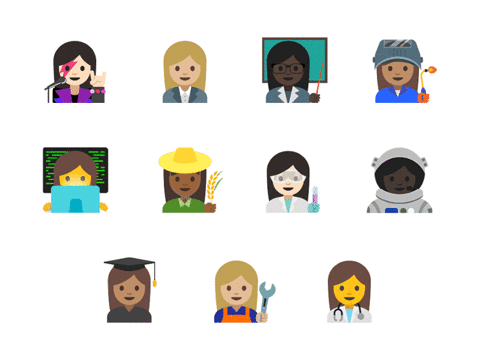What do you think?
Rate this book


448 pages, Hardcover
First published March 7, 2019
Invisible Women is the story of what happens when we forget to account for half of humanity. It is an exposé of how the gender data gap harms women when life proceeds, more or less as normal. In urban planning, politics, the workplace. It is also about what happens to women living in a world built on male data when things go wrong. When they get sick. When they lose their home in a flood. When they have to flee that home because of war.
When planners fail to account for gender, public spaces become male spaces by default. The reality is that half the global population has a female body. Half the global population has to deal with the sexualised menace that is visited on that body. The entire global population needs the care that, currently, is mainly carried out, unpaid, by women. These are not niche concerns, and if public spaces are truly to be for everyone, we have to start accounting for the lives of the other half of the world. And, as we've seen, this isn't just a matter of justice; it's also a matter of simple economics.
Women have always worked. They have worked unpaid, underpaid, underappreciated, and invisibly, but they have always worked. But the modern workplace does not work for women. From its location, to its hours, to its regulatory standards, it has been designed around the lives of men and is no longer fit for purpose. The world of work needs a wholesale redesign – of its regulations, of its equipment, of its culture – and this redesign must be led by data on female bodies and female lives.
The data we already have makes it abundantly clear that female politicians are not operating on a level playing field. The system is skewed towards electing men, which means that the system is skewed towards perpetuating the gender gap in global leadership, with all the attendant negative repercussions for half the world's population. We have to stop willfully closing our eyes to the positive discrimination that currently works in favour of men. We have to stop acting as if theoretical, legal equality of opportunity is the same as true equality of opportunity. And we have to implement an evidence-based electoral system that is designed to ensure that a diverse group of people is in the room when it comes to deciding on the laws that govern us all.

you don’t have to realize you’re being discriminated against to in fact be discriminated against
Representation of the world, like the world itself, is the work of men; they describe it from their own point of view, which they confuse with the absolute truth.
~ Simone de Beauvoir

“The gender data gap isn’t just about silence. These silences, these gaps have consequences.”

“The bodies, symptoms and diseases that affect half the world’s population are being dismissed, disbelieved and ignored. And it’s all a result of the data gap combined with the still prevalent belief, in the face of all the evidence that we do have, that men are the default humans. They are not.”



But their unpaid work inside the workplace doesn’t help either. When students have an emotional problem, it is their female professors, not their male professors, they turn to. Students are also more likely to request extensions, grade boosts, and rule-bending of female academics. In isolation, a request of this kind isn’t likely to take up much time or mental energy - but they add up, and they constitute a cost on female academics’ time that male academics mostly aren’t even aware of, and that universities don’t account for. [...] The inequity of women being loaded with less valued work is compounded by the system for evaluating this work, which is itself systematically biased against women. [...]
Less effective male professors routinely receive higher student evaluations than more effective female teachers. Students believe that male professors hand marking back more quickly - even when that is impossible because it’s an online course delivered by a single lecturer, but where half the students are led to believe that the professor is male and half female. Female professors are penalised if they aren’t deemed sufficiently warm and accessible. But if they are warm and accessible they can be penalised for not appearing authoritative or professional. On the other hand, appearing authoritative and knowledgeable as a woman can result in student disapproval, because this violates gendered expectations. Meanwhile men are rewarded if they are accessible at a level that is simply expected in women and therefore only noticed if its absent.